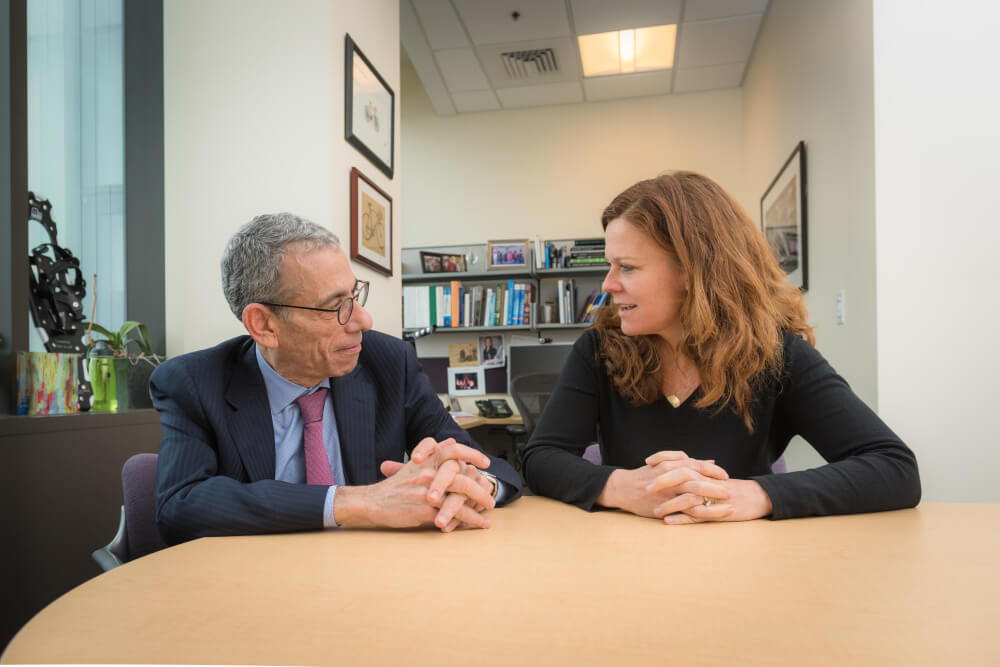The news of a cancer diagnosis can be overwhelming and shocking. Regardless of the type of cancer you might have or the stage at which you are diagnosed, hearing the words “you have cancer” can leave people feeling lost for what to do next.
Here, William Pirl, MD, MPH, Vice-Chair for Psychosocial Oncology at Dana-Farber Cancer Institute, offers five tips for people who have been diagnosed with cancer.
Find a doctor you are comfortable with
It is important to find a doctor whose expertise you trust and whose bedside manner makes you feel comfortable and at ease. Different patients have different needs from their doctors. Some prefer a more talkative, conversational doctor, whereas other patients prefer doctors who are more direct.
“The patient and his or her doctor are partners in cancer treatment,” Pirl says, “so your doctor should be someone you can work with and trust.”

Your doctor will be your main source of information throughout your treatment, so you need to find a doctor who you can trust when it comes to interpretations of medical facts and decisions about treatment.
Avoid consulting unreliable Internet sources about your diagnosis
Looking to the internet for information about cancer can often send patients down a rabbit-hole of information irrelevant to their case, which increases anxiety about outcomes and prognosis. If patients are looking for more information about their cancer, their doctor can recommend credible informational sources.

Reduce alcohol consumption and quit smoking
Smoking is known to be one of the top causes of cancer. For patients who smoke, continued smoking can reduce the efficacy of cancer treatments. Alcohol can interfere with medications as well, and can have a negative effect on a patient’s response to them. Quitting smoking is one of the most important steps a patient can take to improve outcomes. For patients who are smokers, there are strategies that can help you quit.
Exercise
There is a growing body of research that indicates that patients who exercise have better outcomes. Exercise does not have to be a trip to the gym, nor does it have to be intense or strenuous. Most exercises can be adapted for patients who find exercising painful, and for many patients, exercise helps with fatigue and mood. It can also be an empowering activity for patients. “It is one thing people can do to take control of their body at a time when it feels out of control,” Pirl says.
Take care of your emotional health
Sadness and anxiety are common for those who have recently been diagnosed with cancer, but if these feelings persist for weeks, or if your feelings are impacting your ability to connect with your family and friends, you should consider adding a social worker or therapist to your treatment team. Almost a third of patients experience psychological distress and can benefit from an expert on the emotional side of cancer. Resources for Dana-Farber patients are available through the Department of Psychosocial Oncology and Palliative Care.
Learn more about cancer treatment from Dana-Farber Cancer Institute.
